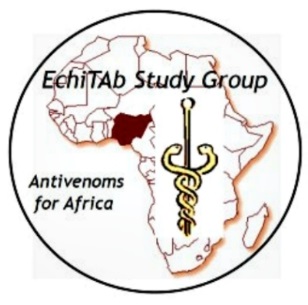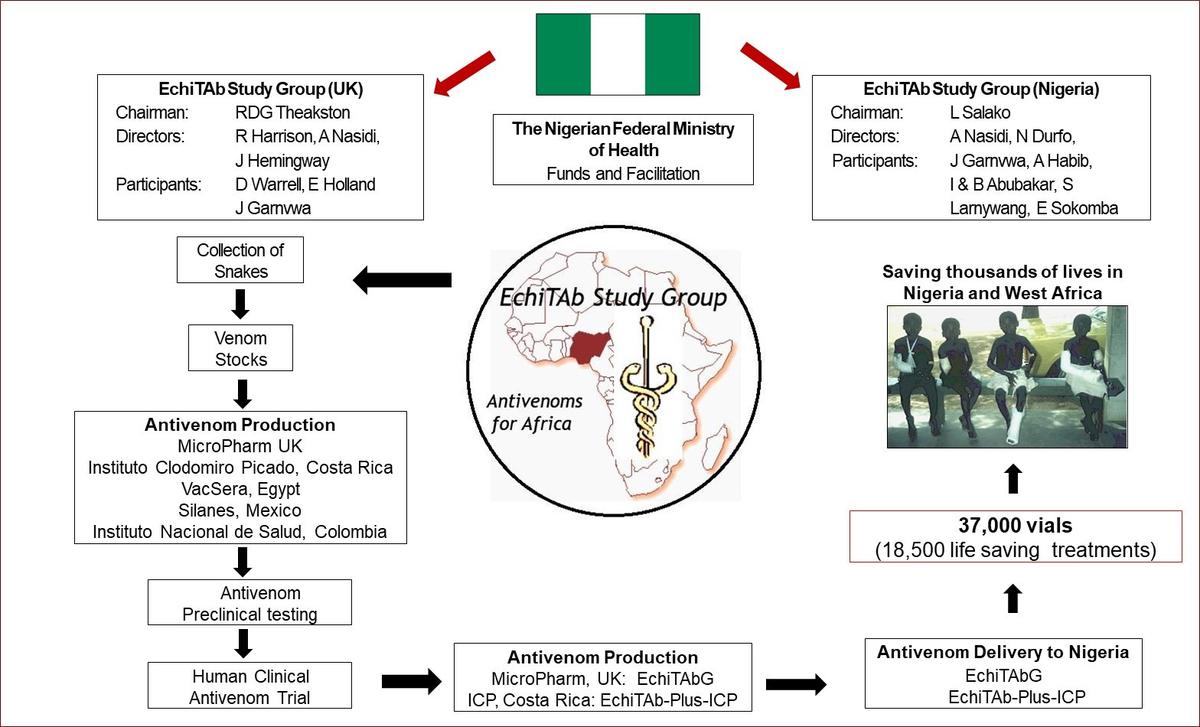LSTM collaboration to resolve the antivenom crisis in Nigeria
In response to the 2003 request from the Nigerian Federal Ministry of Health, the Centre for Snakebite Research and Intervention and University of Oxford formed the EchiTAb Study Group – a collaboration of clinicians, scientists, and antivenom manufacturers. With Nigerian Government funding, the EchiTAb Study Group imported the most medically-important Nigerian snakes into Liverpool, extracted their venom and provided it to antivenom manufacturers in UK (MicroPharm Ltd) and Costa Rica (Instituto Clodomiro Picado) who developed i) a monospecific antivenom to the saw-scaled viper and (ii) a polyspecific antivenom to treat envenoming for Echis ocellatus (Saw-scale Vipers), Bitis arietans (Puff Adders) and Naja nigricollis (Spitting Cobra).
We next conducted human clinical trials, which demonstrated the efficacy and safety of these antivenoms. The two antivenoms developed by the EchiTAb Study Group are more effective, affordable (less than $75/treatment) and safer than any other antivenom developed for sub-Saharan Africa. We also purchased ambulances to quickly transport snakebite victims to newly constructed hospital wards dedicated to snakebite clinical management.
Through these combined efforts, the EchiTAb Study Group has delivered over 37,000 vials of antivenom (18,500 treatments) to help save the lives, and livelihoods, of many thousands of Nigeria’s disadvantaged snakebite victims.


